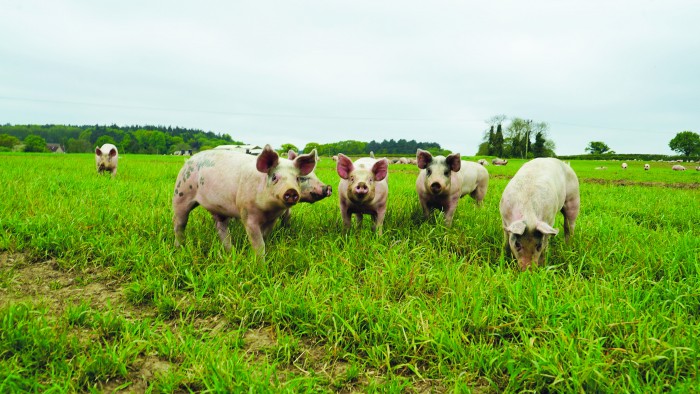Pilgrim’s UK, one of Britain’s leading farming and food businesses, has pledged become a net zero business by 2030 – ten years ahead of the NFU’s industry-wide goal.
The pork producer, which changed its name to Pilgrim’s Pride from Tulip’s after being acquired by meat production giant JBS in 2020, unveiled its roadmap to net zero, which forms part of Pilgrim’s UK’s sustainability strategy ‘Pilgrim’s UK 2030’ which sets out its vision to be ‘the most sustainable producer and supplier in the industry’.
Developed in line with the UN Sustainable Development Goals (SDGs) and as members of the UN Global Compact, Pilgrim’s UK has unveiled the following steps to reach net zero by 2030:
- Significantly reduce emissions across all sites within the business’ supply chain.
- Continue to use 100% renewable electricity across its manufacturing sites.
- Use only 100% verified deforestation-free, sustainable soya by 2025.
- All packaging formats to be selected based on lowest carbon options available.
- Neutralise all remaining residual greenhouse gas emissions using frameworks aligned with the Science Based Targets initiative (SBTi).
Last year, the average Pilgrim’s UK pig farm footprint was 2.53kg CO2e/kg per live weight, which is half of the industry average level of emissions in the pork production process for the UK and Europe.
The new scope 1 and 2 emission reduction targets have been approved by the SBTi, deemed as consistent with levels required to meet the goals of the Paris Agreement.
Matt Dight, head of sustainability at Pilgrim’s UK said: “Reaching net zero by 2030 is possible for our organisation because we are starting from such a strong position, meaning we are able to be bolder in the pace and scale of our commitments than the rest of the industry. Our latest announcement makes us clear trailblazers, advancing at a faster rate than any of our nearest competitors.”




